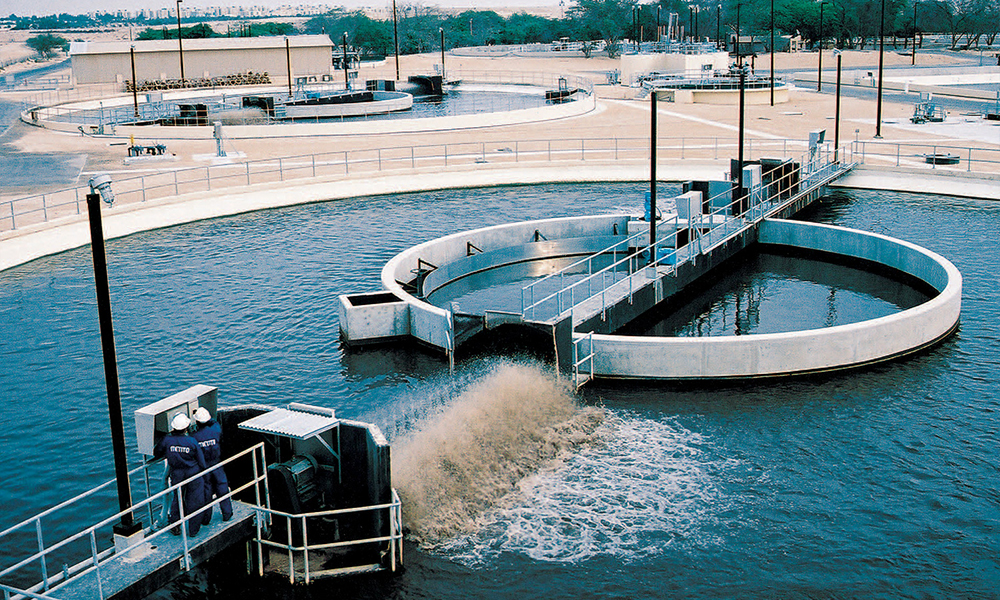Manfalout sanitation plant located in the Al-Atamna village of Manfalout, Assiut governorate, in Upper Egypt has begun its trial operations following the completion of its construction works by Enterprise Sigma Technology, a subsidiary of Select International, and an inspection by Assiut Governor Essam Saad.
The plant occupies a site of over 73 hectares featuring a treatment plant, the main pumping station in the village of Al-Hema, a sub-pumping station, and two supporting pumping stations.
Also Read: Construction of East Africa’s largest wastewater treatment plant almost complete
In addition, it has a 45 km network with diameters ranging from 175 to 1,000 mm of clay pipes, and 26 km of extrusion lines with diameters ranging from 500 to 800 mm that are meant to serve the town of Manfalout, as well as the villages of Nazzah Qarar, Bani Magd, and Sarawa
Upon completion of the trial phase, the project will be handed over to the Drinking Water and Sanitation Company. With a capacity of 38,000 m3 per day, it will benefit 300,000 people at the least.
A part of an integrated sanitation project worth a total cost of US$ 29.3M
The Manfalout sanitation plant is a part of an integrated sanitation project dubbed “Upper Egypt Integrated Sewerage Project” in the governorate of Asyut that is worth a total cost of US$ 29.3M.
This sanitation project is supported by the African Development Bank (AfDB) and the French Development Agency (AFD). It is also being implemented in other governorates such as Aswan, Kena, Sohag, and Minya.
In addition to sanitation infrastructure development, the project also aims to consolidate the reform of the water and sanitation sector, by strengthening the programming and strategic management capacities of the project owner.
Furthermore, the project will help build the capacity of companies to plan and implement their investment programs and to improve their technical and financial performance in order to recover their operating and maintenance costs for sanitation facilities.
